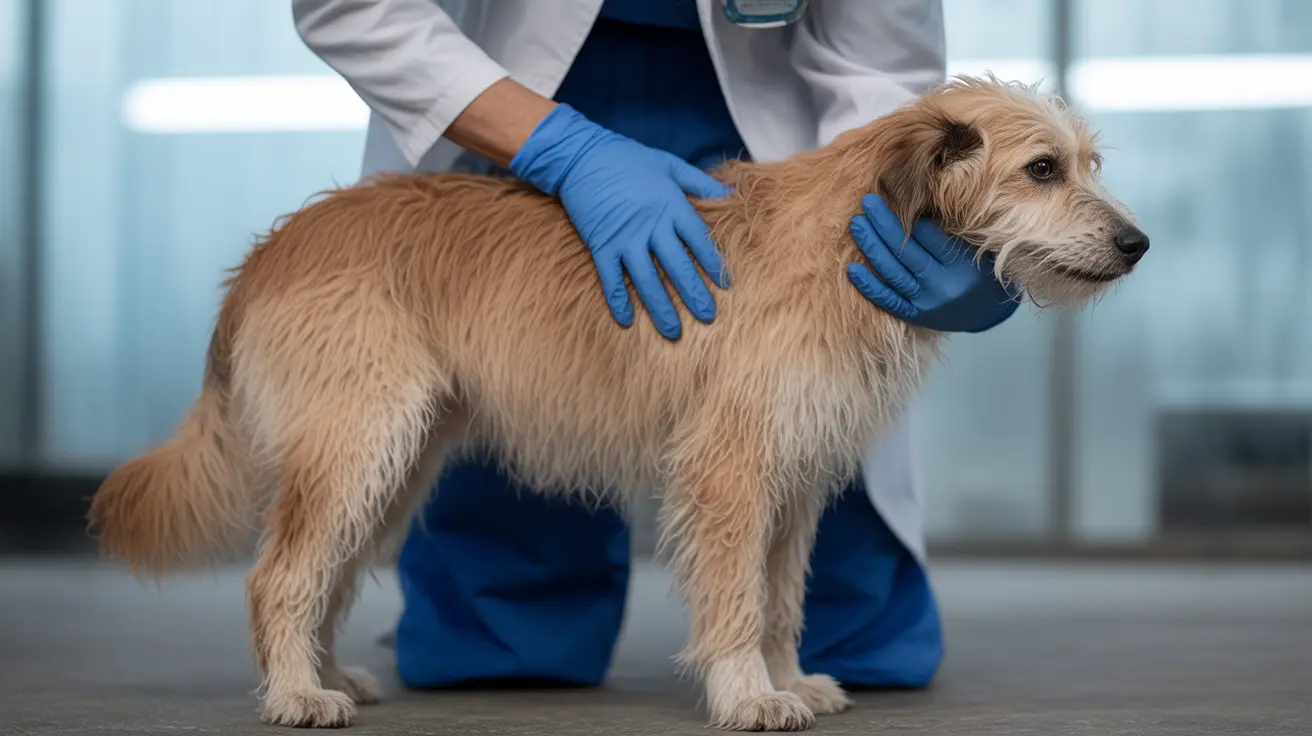Normal Reasons for Dog Groaning
Dogs often make vocal sounds, including groans, as part of their natural communication. When settling down, many dogs emit a low groan or sigh that simply indicates contentment and relaxation. Think of it as similar to a human's satisfied sigh after sinking into a comfortable chair after a long day.
Common harmless reasons for groaning include:
- Feeling comfortable and relaxed
- Expressing satisfaction while being petted
- Adjusting to find the perfect sleeping position
- Natural vocalization tendencies in certain breeds
Age-Related Groaning in Dogs
Senior dogs tend to vocalize more frequently when lying down, often due to natural aging processes affecting their joints and muscles. As dogs age, they may experience:
- Arthritis development
- Joint stiffness
- Reduced muscle flexibility
- General age-related discomfort
These conditions can make the simple act of lying down more challenging, resulting in increased groaning behavior.
Medical Causes for Dog Groaning
While groaning is often harmless, certain medical conditions can cause or increase this behavior. Some potential health-related causes include:
Joint and Bone Issues
- Osteoarthritis
- Hip dysplasia
- Panosteitis in young dogs
- Injuries or sprains
Internal Health Concerns
- Gastrointestinal discomfort
- Bloating
- Ascites (fluid buildup in the abdomen)
- Organ-related pain
When to Be Concerned About Dog Groaning
Pay particular attention to your dog's groaning if you notice:
- Sudden increases in frequency or intensity
- Accompanying signs of pain or distress
- Changes in normal behavior or activity levels
- Difficulty getting up or lying down
- Visible discomfort or restlessness
Tips for Managing Dog Groaning
To help maintain your dog's comfort and potentially reduce groaning:
- Provide a high-quality orthopedic bed
- Maintain a healthy weight to reduce joint stress
- Consider joint supplements (with veterinary approval)
- Ensure regular moderate exercise
- Keep up with routine veterinary check-ups
Frequently Asked Questions
Why does my dog groan when lying down—is it a sign of comfort or pain?
Dogs may groan when lying down for various reasons, ranging from simple contentment to discomfort. If the groaning is accompanied by relaxed body language and normal behavior, it's likely a sign of comfort. However, if paired with signs of pain or distress, consult a veterinarian.
Can groaning when lying down indicate arthritis or joint problems in senior dogs?
Yes, increased groaning in senior dogs often indicates joint problems or arthritis. This is especially common in larger breeds and typically becomes more noticeable during cold weather or after physical activity.
What health issues can cause a dog to groan frequently when changing positions or lying down?
Several health issues can cause frequent groaning, including arthritis, hip dysplasia, gastrointestinal problems, and abdominal fluid buildup (ascites). Any sudden increase in groaning should be evaluated by a veterinarian.
How can I tell if my dog's groaning is due to emotional reasons like seeking attention?
Attention-seeking groans are usually accompanied by other behavioral cues like direct eye contact, pawing, or following you around. These groans typically stop when attention is given and aren't accompanied by signs of physical discomfort.
When should I take my dog to the vet if they start groaning more than usual when lying down?
Consult a veterinarian if your dog's groaning becomes more frequent or intense, is accompanied by other symptoms like reduced mobility or appetite changes, or if there's any sign of pain or distress during normal activities.
Understanding your dog's groaning behavior is key to ensuring their health and comfort. While many instances of groaning are perfectly normal, staying attentive to changes in this behavior can help you catch potential health issues early and ensure your furry friend receives appropriate care when needed.






